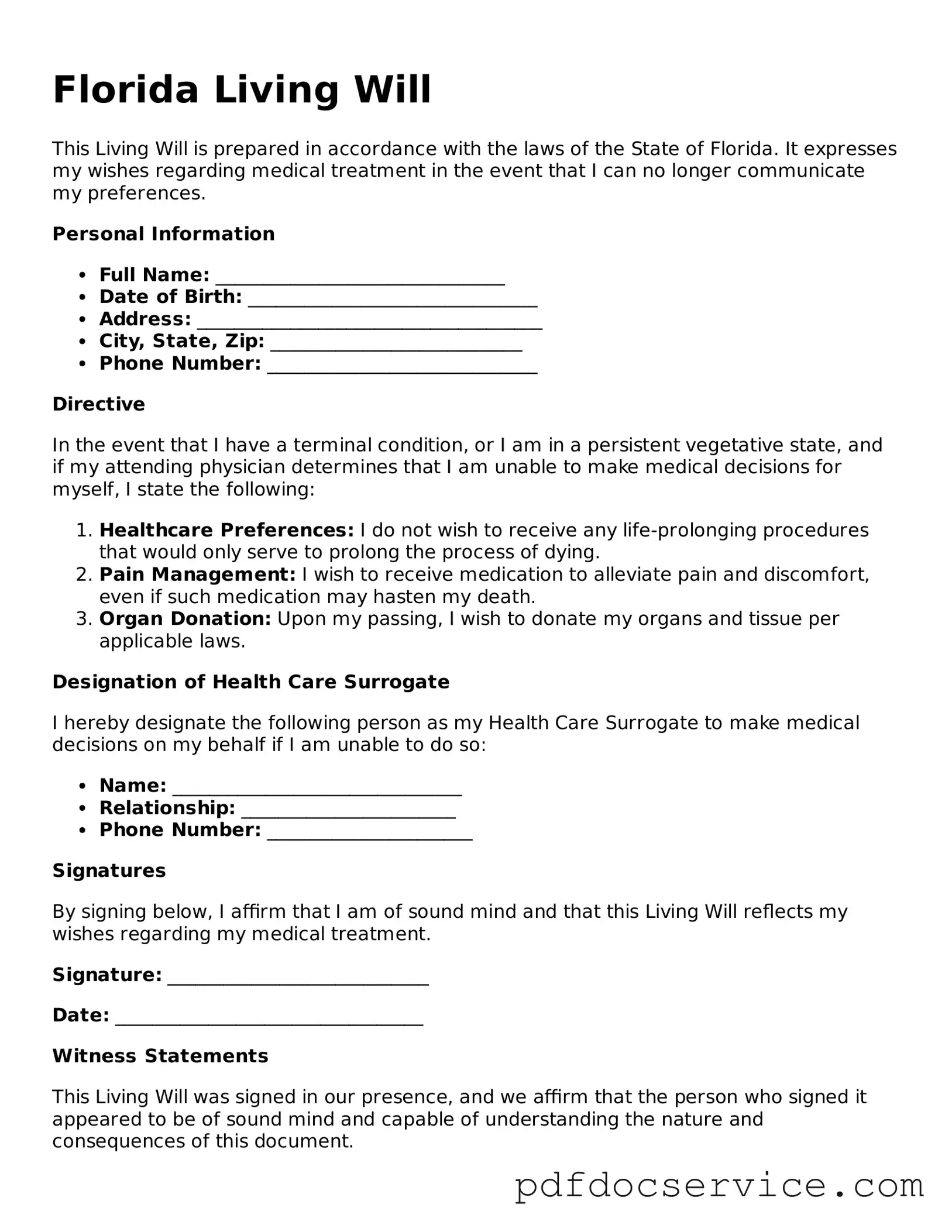Printable Living Will Template for Florida
A Florida Living Will form is a legal document that allows individuals to express their wishes regarding medical treatment in the event they become unable to communicate. This form provides guidance to healthcare providers and loved ones about the individual's preferences for life-sustaining measures. Understanding how to properly complete and use this form is essential for ensuring that one's healthcare decisions are respected.
Open Living Will Editor

Printable Living Will Template for Florida
Open Living Will Editor

Open Living Will Editor
or
Get Living Will PDF
Finish the form now and be done
Finish Living Will online using simple edit, save, and download steps.